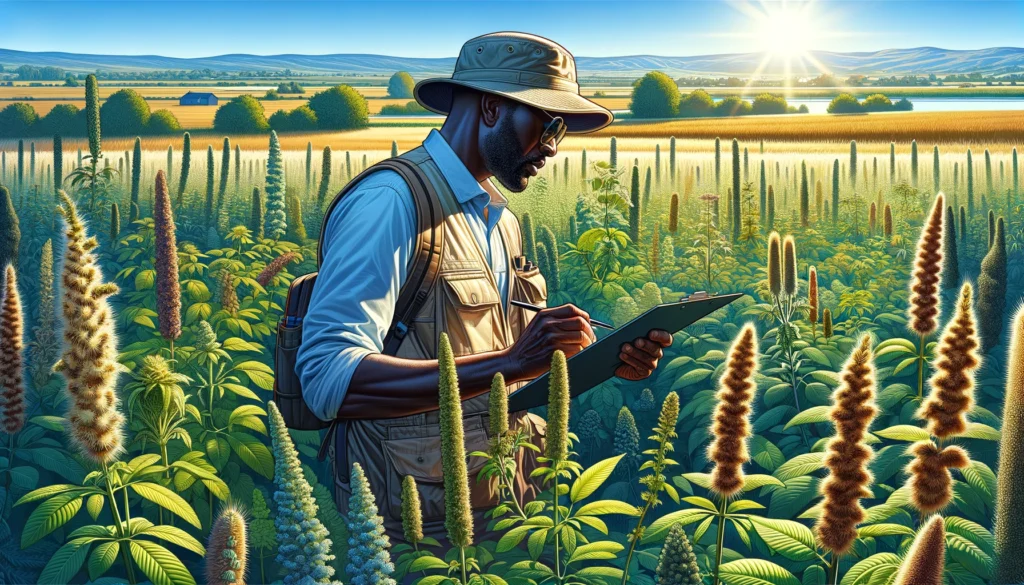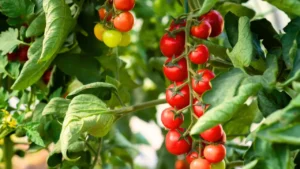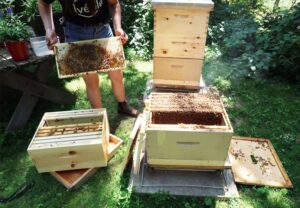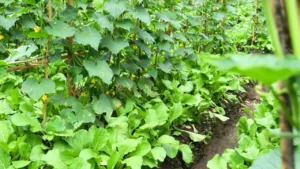
Weed Science Detailed and vivid wide aspect illustration of a weed scientist in the field examining invasive plant species. The scene is a close up view of a Bla.webp.webp
Weed Science
Definition: Weed science is the scientific study of weeds, their biology, ecology, management, and impact on agricultural, natural, and managed ecosystems.
Informative Tips: Weeds are plants that grow where they are not wanted, competing with crops for resources such as nutrients, water, and sunlight, and reducing agricultural productivity. Weed scientists investigate weed biology, distribution, and control methods to develop effective and sustainable weed management strategies.
Fall off the barn roof and busted your keister? Life on the farm or ranch can be tough on the bum. Need a break? Laugh it off at FarmerCowboy.com, the #1 farm humor site. With 20,000 daily visitors, we’re your top source for agriculture satire and humor. Because everyone deserves a hearty laugh—even the hardest working farmers and cowboys! Join us and turn those long days into fun tales at FarmerCowboy.com.
Valuable Assistance: Weed science plays a crucial role in sustainable agriculture by providing insights into weed ecology, population dynamics, and resistance mechanisms, and developing innovative weed management solutions. By understanding weed-crop interactions and weed control tactics, weed scientists help farmers implement integrated weed management (IWM) strategies to minimize weed impacts and optimize crop yields.
Practical Advice: Farmers should adopt proactive weed management practices, including crop rotation, cover cropping, mulching, and mechanical weed control, to prevent weed establishment and reduce weed pressure. Integrated weed management (IWM) emphasizes the use of multiple weed control tactics, including cultural, biological, mechanical, and chemical methods, to manage weeds effectively while minimizing environmental impacts and herbicide resistance.
Beneficial Guidance: Weed scientists collaborate with farmers, extension agents, agronomists, and other stakeholders to develop and promote sustainable weed management practices tailored to specific cropping systems and weed pressures. By conducting research, providing education and outreach, and evaluating weed management technologies, weed scientists contribute to the development of resilient and sustainable agricultural systems.
Enlightening Details: Weed science research encompasses a wide range of disciplines, including ecology, genetics, physiology, agronomy, and soil science, to address complex weed issues. Emerging technologies, such as precision agriculture, remote sensing, and digital weed mapping, offer new opportunities for weed monitoring, detection, and control.
Actionable Suggestions: Farmers should collaborate with weed scientists and agricultural professionals to develop comprehensive weed management plans based on integrated weed management (IWM) principles. Regular monitoring of weed populations, implementation of diverse weed control tactics, and adoption of best management practices are essential for sustaining agricultural productivity and profitability while minimizing weed impacts on the environment.
References:
- Weed Science Society of America. (2021). Weed Science. Link
- International Weed Science Society. (2021). IWSS. Link
- Hartzler, R. G., & Battles, B. A. (2000). The future of weed control in cropping systems. Link

Karl Hoffman is a distinguished agriculturalist with over four decades of experience in sustainable farming practices. He holds a Ph.D. in Agronomy from Cornell University and has made significant contributions as a professor at Iowa State University. Hoffman’s groundbreaking research on integrated pest management and soil health has revolutionized modern agriculture. As a respected farm journalist, his column “Field Notes with Karl Hoffman” and his blog “The Modern Farmer” provide insightful, practical advice to a global audience. Hoffman’s work with the USDA and the United Nations FAO has enhanced food security worldwide. His awards include the USDA’s Distinguished Service Award and the World Food Prize, reflecting his profound impact on agriculture and sustainability.






